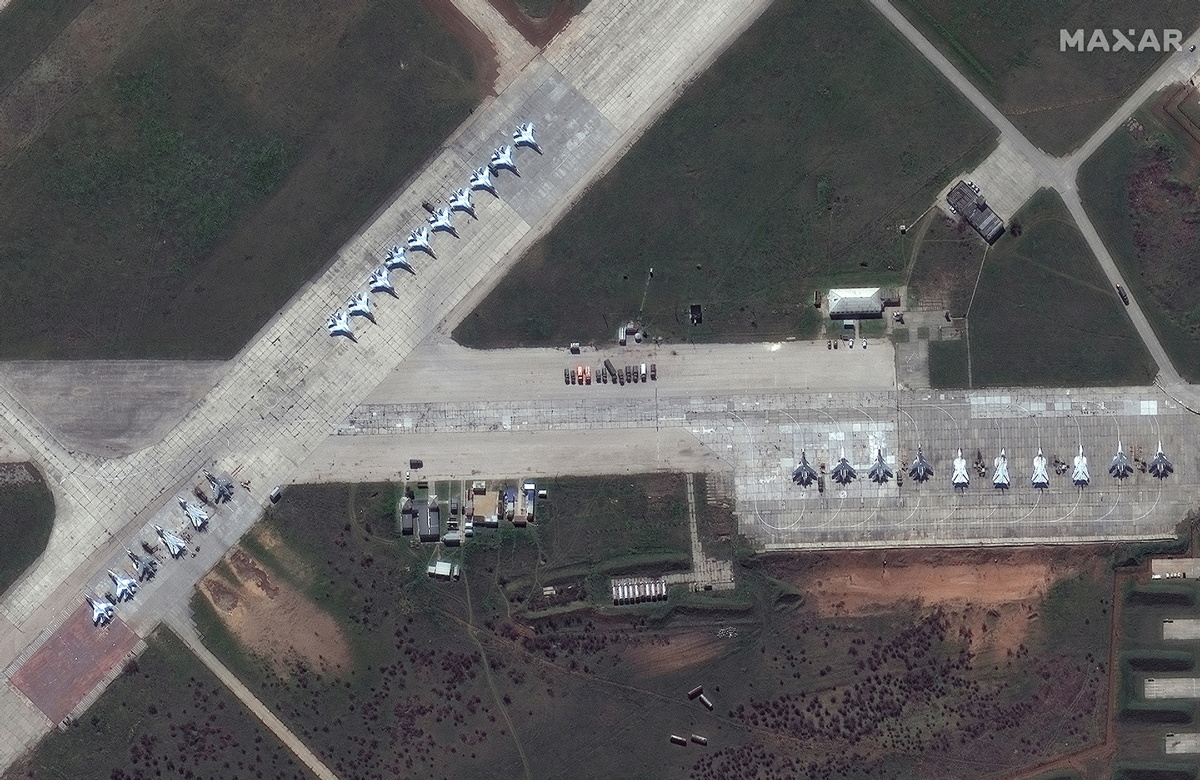Ukraine issue can further strain Russia-US ties
By Zhao Huirong | China Daily | Updated: 2021-04-29 07:38

The United States has not only been more frequently interacting with Ukraine since President Joe Biden assumed office in January but has also stressed that it strongly supports Ukraine's sovereignty and territorial integrity. And while the US condemned Russia's "invasion" of the Crimea Peninsula and role in the Donbass region, the Senate Foreign Relations Committee passed the Ukraine Security Partnership Act on April 22 to increase the annual military aid to Ukraine to $300 million, including lethal weapons, in a bid to contain Russia.
The US plans to arm Ukraine to intensify the Russia-Ukraine conflict and thereby curb Russia's development; use the "Russia threat" theory to further sour relations between Russia and the European Union; portray Russia as an enemy so it can strengthen the US-Europe alliance; and trigger a confrontation between "Old Europe" and "New Europe", hindering the EU's attempt to achieve strategic autonomy.
The Biden administration's use of Ukraine to contain Russia is in line with Ukrainian President Volodymyr Zelensky's plan to seek foreign support to consolidate his government's position, by covering up his failure to make any real achievement in the past two years. For instance, his government has not been able to resolve the Crimea and Donbass issues, and despite Zelensky's pledge to increase Ukraine's GDP by 40 percent in five years, the Ukrainian economy grew by just 3 percent in 2019 only to decline by 4 percent in 2020.
The Zelensky administration says the conflict in Donbass is not a civil war but a war against Russia's aggression, and has initiated a revision of the new Minsk agreements which came into effect in February 2015 to end the fighting in Donbass. It has also refused to negotiate with the Donbass insurgents or grant amnesty to their leaders.
Besides, Zelensky wants the US, the United Kingdom and Poland to be included in the Normandy Format talks-a group comprising representatives of Russia, Ukraine, Germany and France that met in 2014 to defuse the Donbass conflict-to resolve the Ukraine issue in accordance with the Minsk agreements, which Russia has rejected. Zelensky has also asked the international community to impose more severe sanctions on Russia.
Moscow has exercised restraint despite the provocations, partly because it doesn't want to invite more sanctions from the West. However, it has also refused any suggestions to revise the new Minsk agreements, and accused Ukraine of not fulfilling its obligations as per the agreements. And emphasizing that the Donbass conflict is a civil war which has nothing to do with Russia or Crimea, Moscow has advised the Ukrainian government to hold talks with the Donbass insurgents.
Although Russia-Ukraine relations have hit rock bottom partly due to the US' role, Russia is unlikely to declare a war against Ukraine. Ukraine, too, doesn't want a war, because in spite of promising the country all help, the US and NATO don't want to be directly involved in any war with Russia.
On the other hand, it is impossible for Ukraine to join the EU or NATO in the near future, which means Russia's core interests do not face an immediate threat. Hence, Russia will avoid a regional war and instead try to maintain the status quo in Crimea and Donbass.
The US does not want an all-out war either, because it knows full well that a war will only weaken Ukraine and benefit Russia. Yet the US will likely continue to back Ukraine to harass Russia.
As for the new Minsk agreements, they cannot be implemented due to the confrontational stances taken by Russia and Ukraine. As such, the Donbass conflict is likely to continue, even intensify amid the rising tensions between Russia and the US.
However, Russia has been losing some of its advantages in the competition with the US. As a result, Eurasia has become the main geopolitical battlefield between the two sides. If this trend continues, Russia's domestic problems may worsen and the tussle between pro-West and pro-Russia forces in Eurasia will intensify.
But despite losing some of its advantages, Moscow's influence in parts of Europe and Eurasia is strong, and it can jolly well defend itself and prevent Ukraine and Georgia from joining the EU and NATO-and thus thwart the US' attempt to extend NATO up to Russia's borders.
Moreover, Russia has emphasized that the current international rules are unfair and favor a hegemonic US. And Russia knows it can best defend itself by maximizing the use of its energy resources and military power. No wonder Russian President Vladimir Putin, while delivering the state of the nation address on April 23, warned the West not to "cross the red line in respect to Russia".
It is because of these structural contradictions that the future course of Russia-US relations will continue to be bumpy.
The author is a research fellow at the Institute of Russian, Eastern European and Central Asian Studies, Chinese Academy of Social Sciences. The views don't necessarily represent those of China Daily.
























